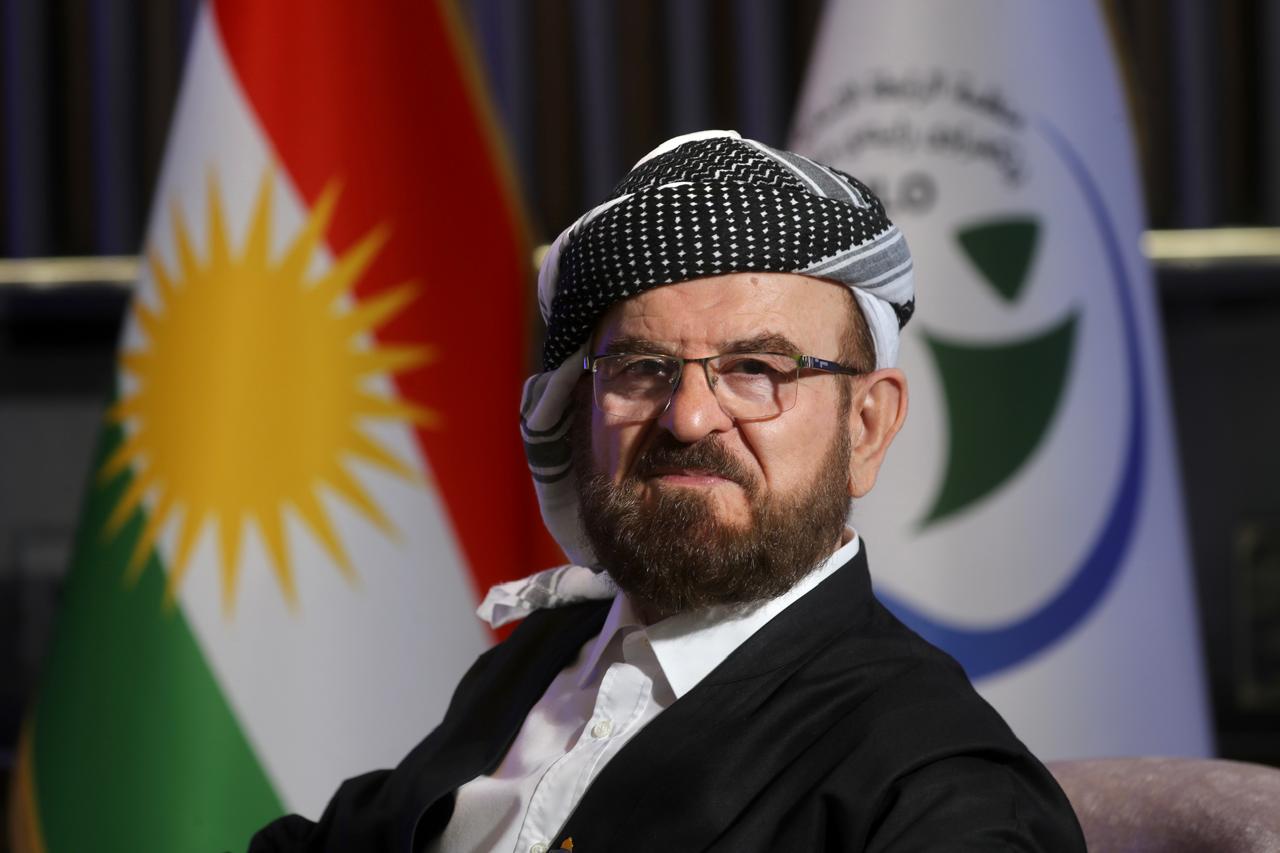
Biography of Dr. Ali Qaradaghi
In the Embrace of Qaradagh
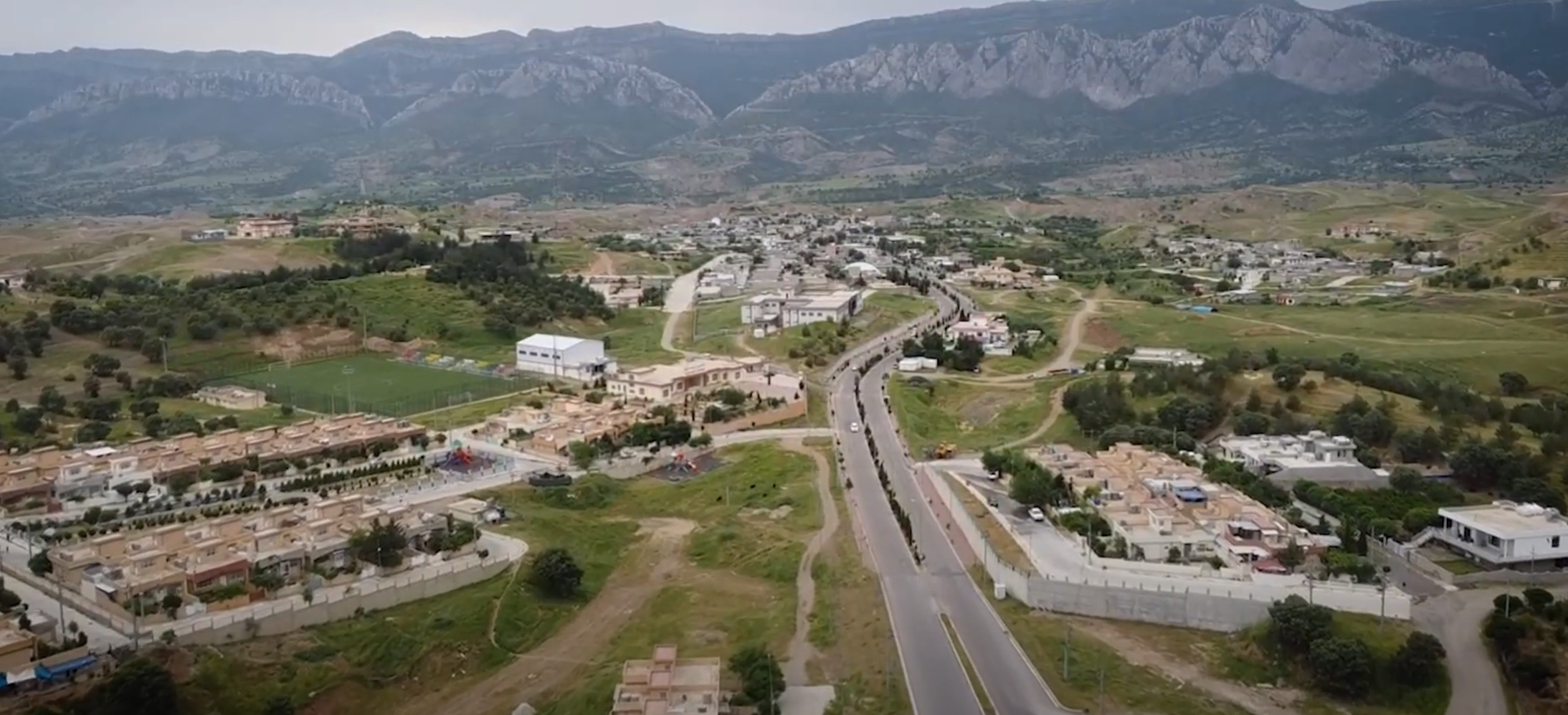
In the village of Nawti, part of the Qaradagh district in the Sulaymaniyah Governorate, in the month of July 1949 AD, corresponding to 1368 AH, His Excellency Dr. Ali Mohiyddin Al-Qaradaghi was born.
It is worth mentioning that the Qaradagh region has long been the cradle of many great scholars, sages, and dignitaries such as Sheikh Abdul Latif the Great, Sheikh Mohammed Najib Al-Qaradaghi, Sheikh Omar Al-Qaradaghi, Sheikh Mustafa Al-Qaradaghi, Sheikh Baba Rasul, Sheikh Nuraddin, and Sheikh Najmaddin. It was also the cradle of the rise of the great Kurdish Sufi scholar, Mawlana Khalid al-Naqshbandi.
His Excellency Dr. Ali Al-Qaradaghi belongs to a religious and knowledge-loving family, and his lineage traces back to Imam Hussein (may God be pleased with him).
His father, Sheikh Mohiuddin, was a devout, God-fearing, and principled man who always supported truth and justice and was a good friend and ally of the immortal Sheikh Mahmud in the Kurdish revolution against the British occupation.
At the same time, he was very opposed to the ideas of the communists and confronted communism in the years 1958-1963 AD. His Excellency Dr. Ali says about his father: "My father was a fearless and courageous man who feared no one but God. In terms of family discipline, he was strict and effective. During the height of the rise of communism, with a few other people, he stood firmly against them in the years 1958-1963 AD, during the revolution of Abdul Karim Qasim in Iraq. They even attempted to assassinate my father, but they did not succeed. He always planted the love of Islam in our hearts and taught us to be proud only of Islam."
His father had an effective role in directing him towards knowledge. His Excellency Dr. Ali Al-Qaradaghi says in this regard: "May my father rest in peace. He took me out of the public school and placed me in a religious seminary (hujra) during the height of communism in Iraq, at a time when all Sharia colleges, institutes, and schools had been dissolved."
His respected mother, the late Mrs. Amina Othman, was a kind, noble, God-fearing, and faith-established woman. She greatly hoped that her children would memorize the Holy Qur'an and become message-bearing mullahs and scholars.
Academic Journey
His Excellency Dr. Ali Al-Qaradaghi began his initial learning and study of the sciences in his homeland, in the village of (Nawti) in the Qaradagh district. During that period, he memorized the entire Holy Qur'an. He later went to the city of Sulaymaniyah to serve under great scholars and teachers such as His Excellency Sheikh Najmuddin Al-Qaradaghi, Sheikh Mustafa Al-Qaradaghi, and several other famous scholars of Sulaymaniyah. He then went to Baghdad and continued his studies in the sciences under a group of renowned great scholars. Among those great and esteemed Mullahs and scholars were His Excellency Mullah Abdul Karim Al-Mudarris and His Excellency Sheikh Abdul Qadir, the orator.
Continuing his academic journey, His Excellency Dr. Ali Al-Qaradaghi completed the Islamic Institute in 1969 AD. A year later, in 1970 AD, he received his scholarly license (ijazah) in the Mullah tradition and the customs of the religious seminaries (hujras) of Kurdistan, under the tutelage of several great scholars and esteemed Mullahs in the city of Sulaymaniyah, including His Excellency Sheikh Mustafa Al-Qaradaghi. It is worth mentioning that he was first at the level of the Kurdistan Region in the Islamic Institute. He then joined the Imam Al-A'zam College in Baghdad to study for a bachelor's degree in Islamic Sharia in 1975 AD, completing it with distinction and ranking first. His ambition for higher education then took hold, and he traveled to Egypt, where he began his master's studies in comparative jurisprudence at the College of Sharia and Law at Al-Azhar University. In 1980 AD, he obtained his master's degree with distinction.
Similarly, His Excellency continued his doctoral studies and was able to obtain his doctorate in the field of contracts and financial transactions from the same college and university with distinction and first-class honors in 1985 AD. Al-Azhar University also commissioned the printing of his doctoral thesis and its circulation among universities worldwide. It is worth noting that his doctoral thesis was titled (The Principle of Consent in Contracts: A Comparative Study in Sharia and Civil Law). In terms of information, the doctoral thesis encompassed the jurisprudence of all eight known and established schools of thought, and in terms of law, it included Roman, English, French, Egyptian, and Iraqi laws.
From another perspective, it is important to note that the intelligence and brilliance of His Excellency Dr. Ali Al-Qaradaghi were not unexpected, as he was very diligently and tirelessly engaged in learning, memorizing, and studying the sciences. In all the sciences such as jurisprudence, exegesis, the science of hadith, the sciences of language, rhetoric, and many other sciences, all of these, along with his sleepless nights and continuous efforts, helped him to join the caravan of leading scholars and achieve the rank of Ijtihad. As an example, we will mention some of these academic sources:
In the science of Arabic language (Ilm al-Nahw): He memorized the book Sadd al-'Amil, Al-'Awamil by al-Birkiwi, along with the book Al-Idhhar. He memorized the book Al-Unmudhaj up to the section on Al-Mansubat. He memorized the book Al-Kafiyah. He memorized seven hundred verses of the book Alfiyyah Ibn Malik with the commentary Al-Bahjah al-Mardiyyah by al-Suyuti, and later studied it in college.
In the science of morphology (Ilm al-Sarf): He memorized the book Tasrif al-Zanjani along with the book Tasrif Mulla Ali. He also studied them with several commentaries. He studied many difficult and important marginal notes such as the marginalia of Qizilji. He studied the book Al-Shafiyah with its commentaries but did not memorize it. He studied the book Gulistan by Saadi Shirazi.
In the science of rhetoric (Ulum al-Bayan, al-Ma'ani, and al-Badi'): He memorized the book Al-Idah. He studied the book Al-Mukhtasar, both the text and its commentary, and memorized several parts of the text. He studied the book Al-Mutawwal but did not memorize it.
The science of the principles of jurisprudence (Ilm Usul al-Fiqh): He studied the book Jam' al-Jawami' and memorized it from the beginning to the section on Ijtihad and Taqlid. He studied the book Lubb al-Albab. He studied a part of the book Al-Mustasfa by al-Ghazali. He studied the book Dirasah 'Ilm Usul al-Hanafiyyah at Imam Al-A'zam College.
The science of jurisprudence and inheritance (Ilm al-Fiqh wal-Fara'id): He memorized the book Fath al-Qarib. He studied the book Fath al-Mu'in and memorized a part of it along with the commentary I'anat al-Talibin. He studied the book Al-Minhaj with its commentary, Tuhfat al-Muhtaj (the section on marriage), along with the section on divorce. He studied the book Al-Manhaj with its commentary. He memorized the book Al-Hidayah.
The sciences of the Qur'an and exegesis (Ulum al-Qur'an wal-Tafsir): He studied the exegesis of al-Baydawi, memorizing a large part of it. He studied a part of the exegesis Al-Kashshaf with its marginal notes. He studied several modern books on the sciences of the Qur'an. The religious seminary where he was a student dedicated Friday nights to the exegesis of the Qur'an and discussions on linguistic analysis (I'rab al-Qur'an).
The sciences of hadith and its interpretation (Ulum al-Hadith): He studied the book Nukhbat al-Fikr, Al-Targhib wal-Tarhib (several parts), along with the book Riyad al-Salihin.
The science of wad' (Ilm al-Wad'): He studied the book Risalah fi 'Ilm al-Wad'.
In the field of literature: His Excellency Dr. Ali Al-Qaradaghi gave great importance to literature and poetry, memorizing many beautiful sayings from the pre-Islamic and Islamic eras. He gave great importance to rhetoric. In the religious seminary, Tuesday nights were dedicated to discussions on poetry and composing poetry.
The science of logic (Ilm al-Mantiq): He memorized the book Isaghuji and studied its commentary. He studied the book Tahdhib al-Mantiq. He studied the book Sharh al-Matali'. He studied the book Kalanbawi Burhan with the commentary of Sheikh Ibn Qaradaghi.
In the field of creed and theology (Al-'Aqidah wa 'Ilm al-Kalam): He memorized the book Tahdhib al-Kalam with the commentary of al-Nasafi. He studied the book Al-Fadilah: Sharh al-Wasilah. He studied the book Sharh al-Mawaqif.
In the field of astronomy (Ilm al-Falak wal-Istirlab): His Excellency studied the basic principles of this science. This science was difficult and not every scholar was able to teach it.
Towards Professorship and Specialization
In the teaching phase, His Excellency Dr. Ali Al-Qaradaghi became a professor at the College of Sharia at Qatar University in 1985 AD. He progressed through the ranks of teaching and lecturing until he reached the rank of full professor (al-Ustādhiyyah) in 1995 AD. In terms of writing and scholarly output, he has more than (50) books, and his scholarly articles and research amount to more than (200) scholarly studies. Most of his scholarly works are in the field of Islamic economics and financial transactions. In addition, his mark is evident in the fields of contemporary jurisprudence and Islamic thought. A large number of contemporary scholars testify that he possesses extensive and multi-dimensional knowledge, is an encyclopedic figure, and has great precision and depth in the jurisprudence of financial transactions and Islamic economics. In this regard, much testimony has been given about him, noting his broad-mindedness, great ability, and continuous effort. It is worth mentioning that His Excellency Dr. Ali Al-Qaradaghi did not confine his abilities to the university, but rather participated in the work of organizations and academic centers continuously, both inside and outside Qatar, attending academic and cultural centers. As a preacher and mufti, he was an effective participant in the field of work and its issues. He was seen and heard in the media, with written works, speeches, articles, and writings. He supervised and participated in a large number of fatwa committees and Sharia supervisory boards for Islamic banks. All of these factors made His Excellency Dr. Qaradaghi beloved by a majority of the people in Qatar and outside Qatar. At the same time, he holds a special respect and status in the hearts of contemporary scholars.
Scholarly Duties and Responsibilities
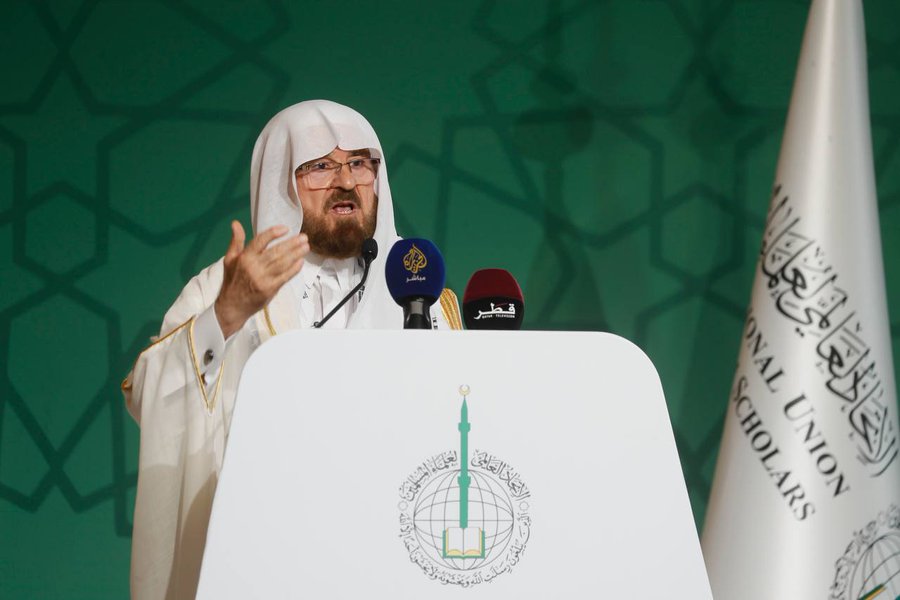
The scholarly duties and responsibilities that His Excellency Dr. Ali Al-Qaradaghi has undertaken to date are numerous and significant. They are a type of duty and responsibility from whose perspective he has had a considerable impact in terms of intellectual growth and proper guidance at the local and global levels. Similarly, His Excellency Dr. Qaradaghi has always placed his level, positions, and scholarly abilities at the service of those important issues that have become the great concerns of the Islamic world.
Among the most important duties and responsibilities of His Excellency Dr. Qaradaghi are these:
President of the International Union of Muslim Scholars.
Secretary-General of the International Union of Muslim Scholars.
Vice President of the European Council for Fatwa and Research.
Professor and Head of the Department of the College of Sharia, Law, and Islamic Studies at Qatar University (formerly).
Chairman of the Board of Trustees of the University of Human Development in Kurdistan, Iraq. He also founded this university and provided financial support for it. The university is a waqf (endowment), not for profit.
President of the Human Appeal organization.
President and founder of the Iqra Organization.
President and founder of the Leaders Educational Complex.
Chairman or executive member of a group of fatwa and Sharia supervisory boards for a number of Islamic banks and Islamic insurance companies within Qatar, including the Qatar Islamic Insurance Company. Outside of Qatar, such as Dubai Islamic Bank, Investment Bank in Bahrain, and the First Investment in Kuwait.
The International Union of Muslim Scholars
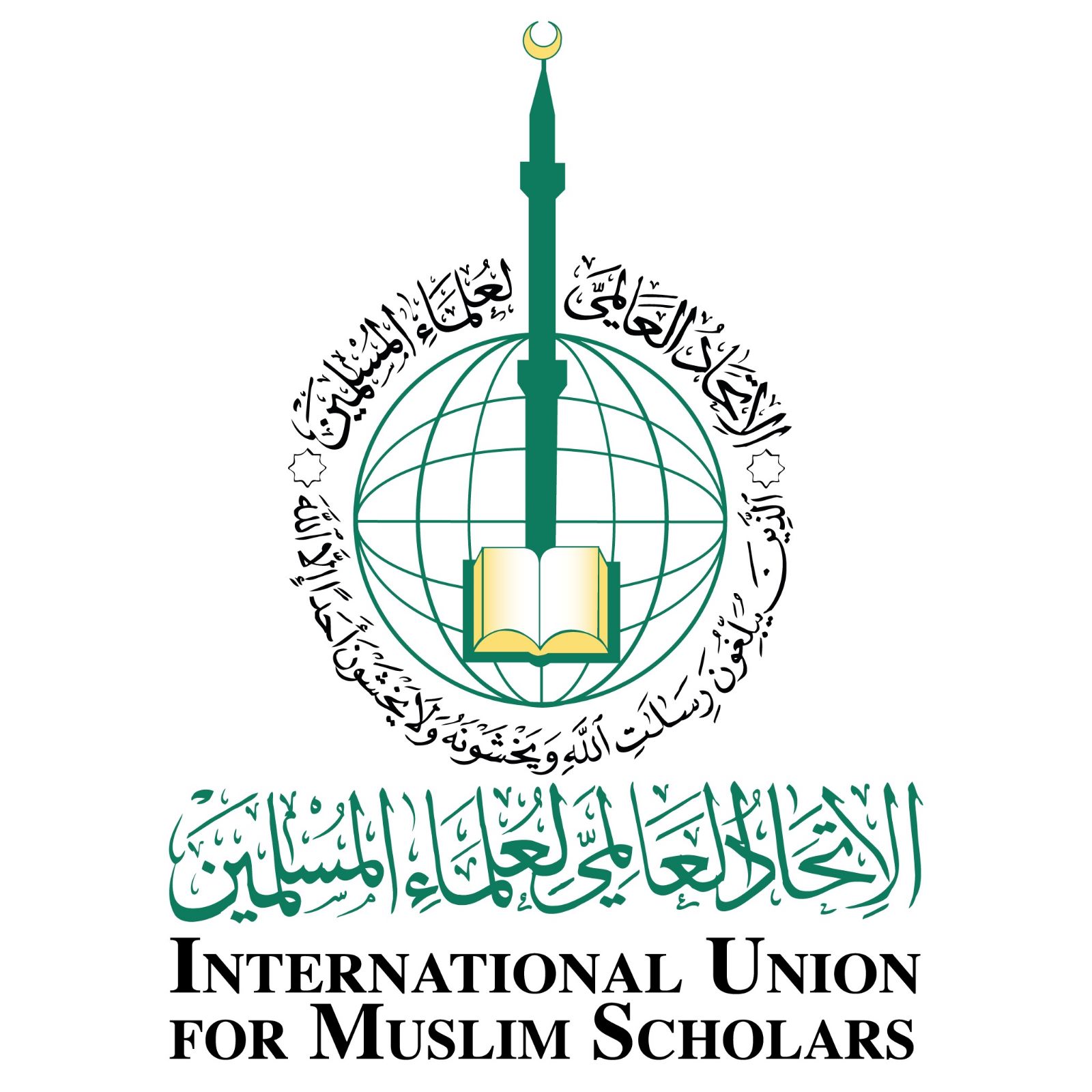
Due to the importance, greatness, and spiritual dignity of the International Union of Muslim Scholars and the positive role, influence, and impact it has in many fields, we found it important to provide a brief introduction. This organization is a special Islamic institution for scholars, founded in 2004 in the city of Dublin, Ireland. In early 2011, it moved its main headquarters to Doha, the capital of Qatar. The institution has members in many countries of the world and also has several members in countries with Muslim minorities. This institution has its own spiritual identity and is not affiliated with any state or political organization; it has maintained its independence and has its own legal and financial personality.
His Excellency Dr. Qaradaghi is an influential figure in this institution and one of the members of the founding board. He later became the Secretary-General of the institution and then the President which remains in that position to this day.
The vision of the International Union of Muslim Scholars is to become a major religious authority in terms of planning and directing the civilizational project of Islamic peoples within the circle of peaceful coexistence with human society. Its message in this field is to investigate the problems and issues of the Islamic peoples, identify the problems and issues, and present fundamental solutions, and to serve the Islamic peoples through its institution under the leadership of scholars.
A summary of the objectives of the International Union of Muslim Scholars is as follows:
Preserving the identity of the Islamic peoples so that they remain a moderate ummah (nation), worthy of being witnesses over the peoples of the world, enjoining good, and forbidding evil.
Taking all appropriate measures to confront any destructive and misleading organization or group against the sublime religion of Islam, at the internal and external levels. This is done by spreading and communicating moderate thought, promoting religious culture, and facilitating the learning and knowledge of religious guidelines.
Strengthening the spirit of Islamic devotion at the individual and community levels so that the Islamic peoples are prepared to fulfill their duties, implement the message of cultivating the earth in reality, carry out the duty of stewardship, and become a civilizational witness for humanity, in a way that the outcome and product of this religiosity are practically beneficial, based on high morals, ensure intellectual perfection, reach the pinnacle in terms of high values, and become a beautiful and good model for all people in general.
Formulating the general principles for the implementation of Sharia, through contemporary ijtihad (scholarly reasoning) and through scientific centers and scholars who are competent, worthy, and attested to in terms of ability and trustworthiness. This is with the aim of proving the suitability and validity of Islam for all times and eras, and also to ensure that the rulings of Sharia have the ability to respond to the necessities of the modern era and adapt to new conditions at the level of the individual, family, and society.
Uniting the capabilities and strength of the Islamic peoples with their different views and schools of thought, as well as uniting the capabilities, efforts, and intellectual and scientific positions of the scholars of the Islamic Ummah on important and fateful issues to face challenges and obstacles with one heart and one rank.
This institution is a flawless Islamic institution, composed of the scholars of Islam, and it works to serve and support Islamic causes. It draws inspiration from the flawless source of Islam, and in all its work and activities, it makes Sharia the standard and represents Muslims with all their schools of thought and components.
This institution is not regional or local, not Arab or non-Arab, not Eastern or Western; rather, it represents Muslims at the level of the Islamic world in general, and it also represents Muslim minorities outside the Islamic world.
This institution is not an official, state-affiliated institution; rather, it derives its strength and support from the trust that the Islamic peoples and the Muslim masses have given it. At the same time, it does not oppose any state, but rather desires to open the window of relations and cooperate with states in everything that is for the good of Islam and Muslims.
This institution will not become an appendage of any state, party, organization, group, or faction; it only takes pride in Islam and the Islamic peoples. This is an institution for the scholars of the Islamic Ummah. It is not surprising that this institution makes Islamic science and culture its focus of interest and endeavors to convey, correct, and spread it. At the same time, it is an institution that pays attention to the Islamic call (dawah) through the language of speech and writing, and any other suitable means such as audio, visual, and print, within the framework of those efforts, it is committed to the Quranic method in calling with wisdom, good counsel, and pleasant dialogue.
This institution works in more than 70 countries, in Asia, Africa, Europe, and America. It carries out its work and projects through its offices and branches, and its members enthusiastically implement the work and activities of the institution in cooperation with those organizations that have common goals.
This institution has opened its membership doors to specialized scholars and graduates of Islamic sciences from universities around the world, and to anyone else who has an interest and depth in Islamic science and culture and possesses notable and recognized abilities and works in that field.
Membership in Councils, Committees, and Associations
1. Member of the European Council for Fatwa and Research.
2. Member of the Sharia Council and the Accounting and Auditing Organization for Islamic Financial Institutions (AAOIFI).
3. Founder of the "Al-Rahma Al-Insaniyah" (Humanitarian Mercy) organization in Scandinavia.
4. Founding member of the Sheikh Eid Bin Mohammad Al Thani Charitable Association in the country of Qatar.
5. Member and Sharia advisor in the General Assembly of the Qatar Charitable Society.
6. Member and Secretary of the Council of the College of Sharia and Law, a member of most committees and the rapporteur of scientific meetings, as well as a member of the journal of the Center for Research on the Sunnah and the Prophet's Biography (peace be upon him), and also a member of the preparatory committee for conferences and congresses.
7. Expert at the Islamic Fiqh Academy of the Organisation of Islamic Cooperation in Jeddah.
8. Expert at the Islamic Fiqh Academy of the Muslim World League in Mecca.
9. Expert at the Global Zakat Organization.
10. Supervisor of the Islamic Banking College at Luta University, which is an open university on the internet.
11. Member of the Academic and Advisory Committee at the Oxford Centre for Islamic Studies, which is affiliated with the University of Oxford.
12. Member of the Board of Trustees and the Executive Council at the International Islamic University
His Books (Arabic)
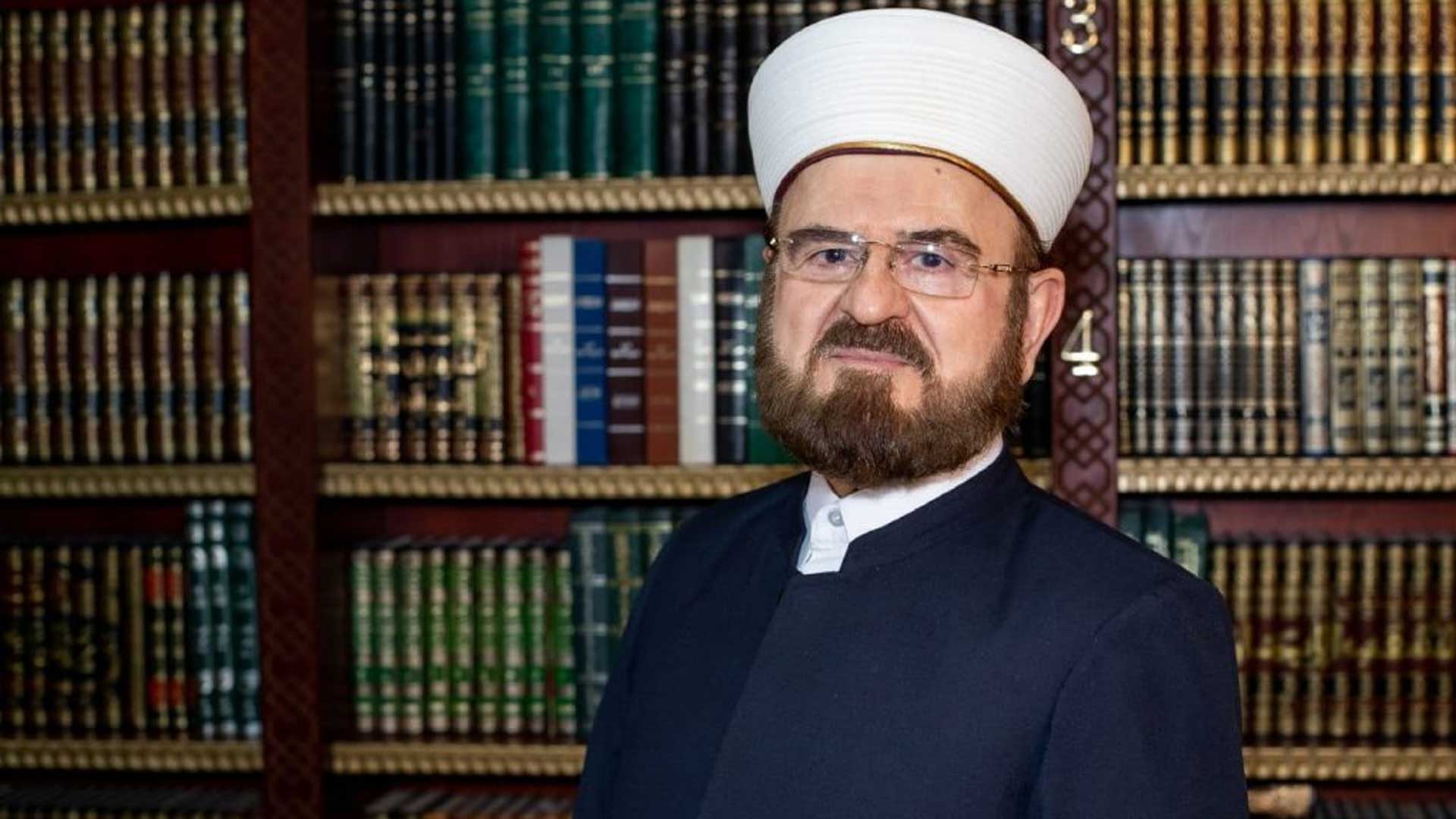
1. The Student of Knowledge's Portfolio in Islamic Economics and Islamic Financial Transactions, for the Ministry of Awqaf and Islamic Affairs of the State of Qatar, 2010 AD. The portfolio consists of 14 volumes.
2. The Global Financial Crisis: A Study of its Causes, Effects, and the Future of Capitalism After It - Its Treatment from the Perspective of Islamic Economics - and How to Benefit from it in Our Islamic World. Published by Dar Al-Basha'er Al-Islamiyyah, 2009 AD.
3. We and the Other: An Authentic Fiqhi Study to Explain the Relationship of a Muslim with Others in Situations of Peace and War, Minority and Majority, in Light of the Quran, the Sunnah, and the Fiqh of Balance. Published by the Authorship and Translation Committee of the International Union of Muslim Scholars within the series: Issues of the Ummah (3), 2009 AD.
4. Salam and its Contemporary Applications in Goods, Usufructs, and Services (Its Sukuk, and the Ruling on Organized Salam) - A Comparative Fiqh Study (In Press).
5. Banking and Insurance, an Analytical Study.
6. Al-Manhal Al-Naddakh fi Ikhtilaf Al-Ashyakh, Investigation and Study. Published by Dar Al-Basha'er Al-Islamiyyah, Beirut, 2007 AD.
7. Fiqh of Contemporary Medical Issues. Published by Dar Al-Basha'er Al-Islamiyyah, 2005 AD.
8. The Ruling on Investing in Stocks 2005. Published by Doha Press, 2005 AD.
9. Research in the Fiqh of Contemporary Financial Transactions. Published by Dar Al-Basha'er Al-Islamiyyah, Beirut, 2001 AD.
10. Fiqh of Companies. Published by Dar Al-Mutanabbi, Doha, 1996 AD.
11. The Rule of Fungibles and Non-Fungibles and its Effect on Rights and Obligations with a Contemporary Application to Our Fiat Currency. Dar Al-Basha'er, 2016 AD.
12. Al-Wasit fi al-Madhhab by Al-Ghazali, Investigation, Study, and Commentary, 9 volumes.
13. The Principle of Consent in Contracts, A Comparative Study in Sharia and Civil Law. Published by Dar Al-Basha'er Al-Islamiyyah, Beirut, 1985 AD, which is a two-volume doctoral dissertation.
14. The Meaning of 'La ilaha illa Allah' by Al-Zarkashi, Investigation, Study, and Commentary. Printed in Egypt in 1982 AD.
15. Ayyuha al-Walad (O' Son!) by Al-Ghazali, Investigation, Study, and Commentary. Printed in Egypt in 1982 AD.
16. Al-Ghayah al-Quswa fi Dirasat al-Fatwa by Al-Qadi Al-Baydawi, Investigation, Study, and Commentary. Published in Egypt, 1980 AD.
17. Man and Faith by Sheikh Said Nursi, Investigation with the writing of a long introduction about Nursi's life, struggle, and efforts.
18. The Chosen Method in the Interpretation of Sharia Texts (Under final preparation).
19. Jihad, Terrorism, and Violence.
20. Mukhtasar al-Umm by Al-Buwayti, Investigation, Study, and Commentary (Under preparation).
21. To Which Islam Do We Call? (Under preparation).
22. The Effect of Company or Portfolio Debts and Cash on the Ruling of Trading Stocks, Sukuk, and Investment Units (The Problem and Solutions), A Fiqhi-Economic Study. Published by the Development Bank.
23. Comprehensive Development Strategy and Economic Policies (Monetary and Financial).
24. Islamic Insurance. An Authentic Fiqh Study.
25. Research in the Fiqh of Contemporary Issues.
26. Research in the Fiqh of Islamic Banks.
27. Introduction to Wealth, Economics, Property, and Contract.
28. Research in Islamic Economics.
29. The Introduction to Islamic Economics. An Authentic Study Comparing it with Positive Economics in Light of the Quran, the Sunnah, the Maqasid of Sharia, and our Fiqhi Heritage.
30. Banking Tawarruq between Regulated Tawarruq and Organized Tawarruq.
31. Financial Rights and the Extent of the Permissibility of Compensation for Them with their Contemporary Applications.
32. Islamic Takaful Insurance.
33. Comprehensive Reform: The Message of the Prophets and the Means of Advancement and Progress.
34. Ijtihad and Fatwa (Their Importance, Conditions, and Contemporary Applications).
35. The Islam of Mercy and the Phenomenon of Terrorism.
36. Fiqh of Balance.
37. Joseph, peace be upon him.... A Role Model for Muslims in Non-Muslim Lands.
38. The Comprehensive Ethical Principles for Bioethics in Islam. A Maqasid-Based, Authentic Study and a Critique of the Theory of Western Medical Ethics.
39. The Environment is Our Mother. A Maqasid-Based Ethical Study in Light of the Fiqh of Balance.
40. The Ascension from the Objectives of Sharia to the Maqasid System.
41. The Charter of Ijtihad and Fatwa According to the Fiqh of Balance
42. In Farewell to the Soul Brother and the Scholar of the Age, Sheikh Al-Qaradawi
43. Transferring the Principle of Masalih Mursalah (Unrestricted Public Interest) to a Comprehensive, Definitive, and Textually Stipulated Proof
44. The Leasing of Assets and its Contemporary Applications
45. The School of Prophethood: Honor and Strength
46. Contemporary Fatwas
47. The Justice of God Almighty and the Disasters of the Universe
48. Bank Interest and its Relationship with Inflation
49. Comprehensive Development
50. The Roadmap for the Liberation of the Ummah
51. The Fiqh of Outcomes (Ma'alat)
52. Urbanism and Architecture
53. The Concise Guide to the Fiqh of Zakat and its Contemporary Issues
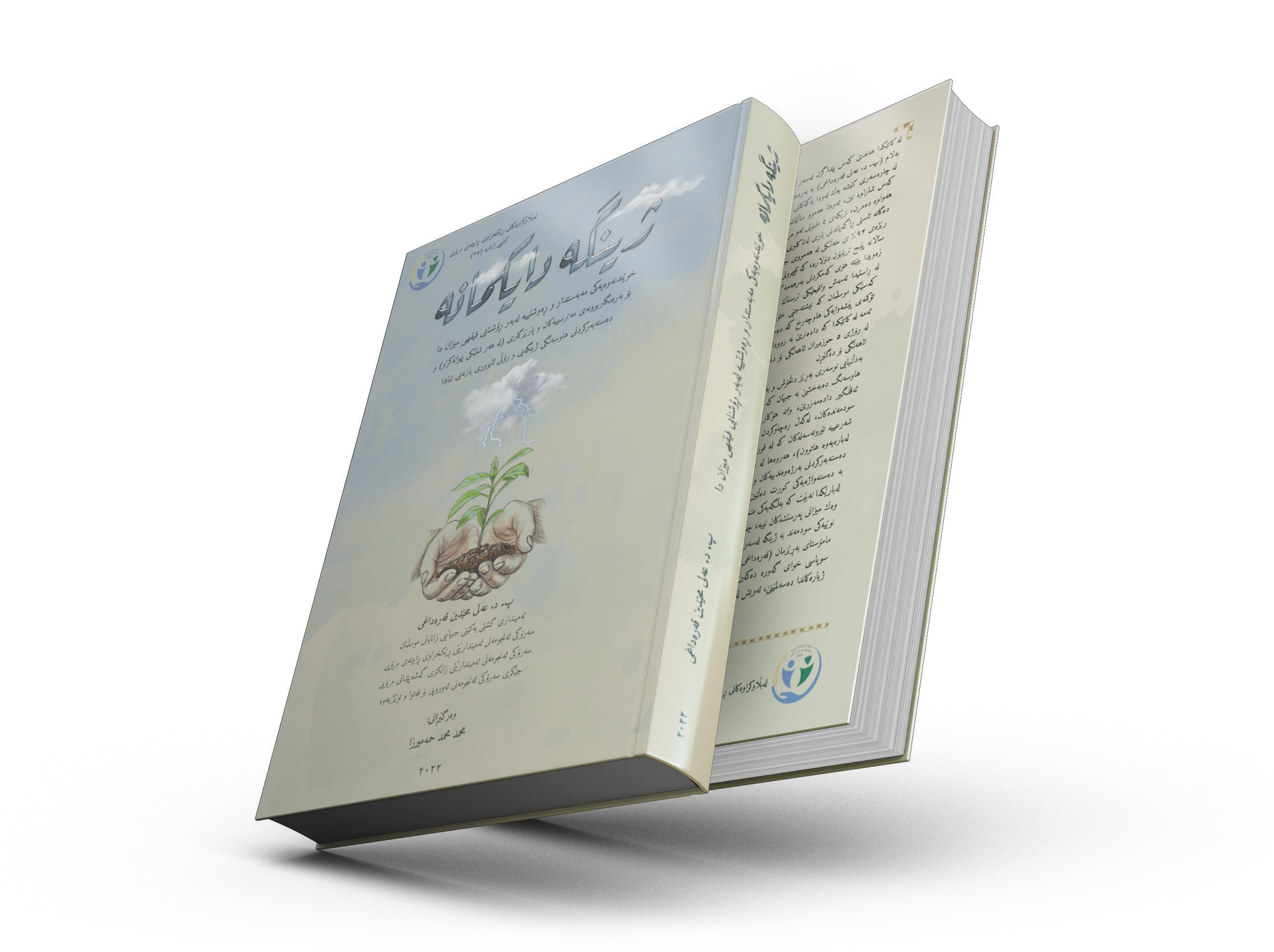
Dr. Qaradaghi Amidst the Honors
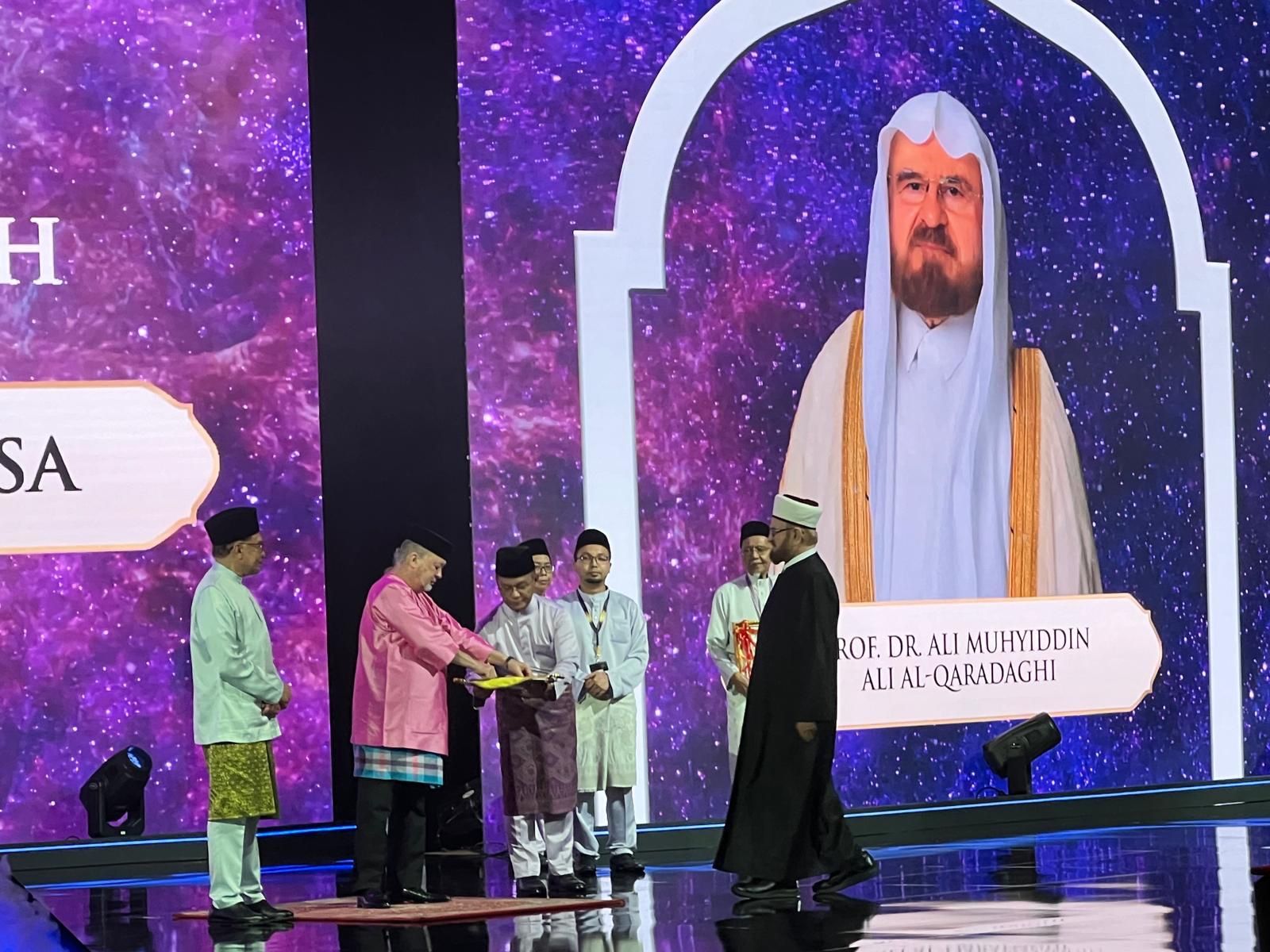
On several different occasions and events, His Excellency has been honored and presented with important, renowned, and international awards, including:
* The award for distinguished scientific research for the book (*Takaful Insurance*) in 2011 in the city of Riyadh.
* The "Ajman" award, which was dedicated to individuals who have had a notable and influential role in serving society at a global level, in the year 2001.
* The International Incentive Award in the field of comparative Islamic jurisprudence, an award bestowed by the state of Qatar upon individuals who have prominence and deep expertise in one of the sciences.
* The "International Islamic Personality" award in Malaysia: This award was bestowed upon him on the first day of the Hijri year 1446 in recognition of his efforts in "strengthening moderate thought in the religion of Islam, especially in Sharia, Islam, and the state." Dr. Ali Qaradaghi is the first Kurd to receive this award.
* A medal of honor from the President of Ingushetia.
* A medal of honor from the Mufti of the Russian Federation.
* Several other scientific honorary awards from the countries of Malaysia, Russia, Turkey, Sudan, Kuwait, and Jordan.

